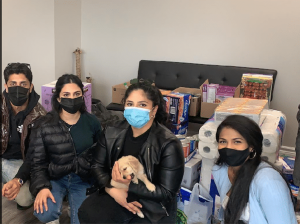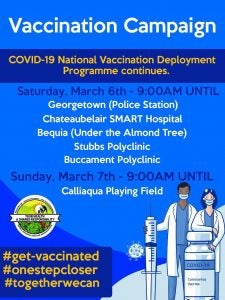Will classes resume on-campus in January 2021?
The management and administration have decided to maintain the online teaching platform for the January Winter 2021 semester. The likely second wave of the COVID-19 Virus overlapping with the Influenza season and the ongoing increase in number of cases in some countries poses significant risk for travelers especially those transiting through high risk countries. Additionally, the mandatory quarantine period adds to the financial strain of travelers. Most importantly, the safety and health our Faculty and Students remains our top priority.
Should I travel to Campus for the January 2021 Semester?
Traveling increases your chances of contact with an infected person and contracting and spreading the COVID-19 Virus. ASUSVG is not encouraging students to travel during the pandemic. If students wish to travel to St. Vincent or designated clerkship sites to continue their studies, the University will extend the same courtesies and assistance as given prior to the pandemic. I urge you to exercise all precautions during any type of traveling.
What do I need to know when Traveling?
Students must be aware of the protocol for entry to all transiting and destination countries. Some of the basic requirements during travel include but not limited to the following: –
- A negative SARS-CoV-2 RT PCR COVID-19 Test taken within a specific period depending on your destination country.
- St. Vincent – the following is a summary of the protocol for entry into St. Vincent and the Grenadines effective October 14th, 2020.
- High Risk Countries – Negative test done no more than five (5) days before arrival.
- Medium Risk Countries – Negative test done no more than five (5) days before arrival.
- Low Risk
- CARICOM Bubble – Activated
- Not required to arrive with a negative result for COVID-19 Test
- May be tested on arrival
- No quarantine if no evidence of onboard vessel exposure and not in a high-risk occupation
- CARICOM – Not activated
- Required to arrive with a negative COVID-19 test.
- May be tested on arrival.
- May mandatory quarantine for 48 – 72 hours at home to await clearance.
- CARICOM Bubble – Activated
- Full updated travel protocol can be found on the SVG Argyle International Airport website:
http://www.svg-airport.com/blog/information-on-covid-19/ - Travel Health Notices for High, Moderate and Low risk countries are found at the following website: https://www.cdc.gov/coronavirus/2019-ncov/travelers/map-and-travel-notices.html
- St. Vincent – the following is a summary of the protocol for entry into St. Vincent and the Grenadines effective October 14th, 2020.
- Use of Face mask – travelers are expected to wear a face mask while boarding and on board an aircraft. Failure to comply with the airline regulations will result in you being removed from the flight. Face masks covers your nose and mouth and limits the transmission of aerosol droplets.
- Travelers from specific high and medium risks countries are subject to mandatory quarantine in approved specific Government facilities upon arrival to St. Vincent. Check with your destination country for their quarantine protocol upon arrival.
- Maintain social distancing – avoid close contacts with persons who are not from your household. Persons are encouraged to stay at least 6 feet apart.
- Wash your hands often or use a hand sanitizer with at least 60% alcohol.
- Avoid contact with persons who are sick.
- Avoid touching your eyes, nose, and mouth.
- If you must travel, then please visit the CDC website for full details on considerations to take during travels. Website can be accessed at the following link: https://www.cdc.gov/coronavirus/2019-ncov/travelers/travel-during-covid19.html
Do face masks help in the prevention of the spread of COVID-19?
The Centers for Disease Control and Prevention (CDC) has stated that “cloth face coverings are a critical tool in the fight against COVID-19 that could reduce the spread of the disease, particularly when used universally within communities.” Publications by the Journal of the American Medical Association (JAMA) also supports the use of face masks in the preventing of COVID-19. Please click on the link below for information on how to select, wear and clean your mask: https://www.cdc.gov/coronavirus/2019-ncov/prevent-getting-sick/about-face-coverings.html






